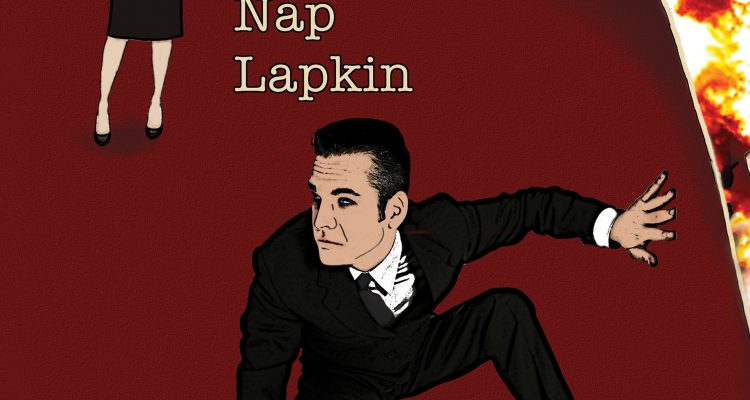Who is Lance Manion? In short, he’s the self-published author of eight “books,” which includes a collection of around 430 short stories, and has recently published “Tales of Adventure with Nap Lapkin,” a continuous story revolving around the same character, Nap Lapkin.
Well, why should you care? Realistically, and according to the author himself, you shouldn’t. Manion’s books are far under the radar, loosely edited and lack any real substance other than a vague sense of humor. However, that may be exactly the kind of book you’re looking to pick up while you procrastinate writing another essay.
Manion as a person is an absolute mystery. His website looks like it hasn’t been updated since 2006, and his “About” page paints him in the most convoluted, roundabout way I’ve ever seen. It makes him look like an off-the-grid hermit who hasn’t heard a joke since Abbott and Costello’s “Who’s on First?” bit. He also has no pictures of himself, which forces his writing to stand for itself.
“I don’t care about other writers. I don’t go to classes at the community college about writing. I don’t send things out for some professional to take a look at it,” Manion said. ”I just want to remove the pretension [with writing].”
Lance Manion is the guy in the room who’s mildly funny but laughs at his own jokes as if he’s hilarious. His jokes are definitely jokes, but, at least for me, they failed to hit their mark. His jokes are what the class clown would say in your sixth grade social studies class, which is fine, but also makes you wonder why you’re reading them as an adult.
Regarding his main character for his newest book, Nap Lapkin’s name, Manion talks about how he fumbled over the term “lap napkin” at a restaurant and couldn’t stop laughing over the name.
“Everybody laughed for about 30 seconds, and I just kept going back saying ‘that is the greatest name for a character ever,’” Manion said.
Manion writes like a Douglas Adams impersonator. He even cites Adams as one of his inspirations along with P.G. Wodehouse and Stephen King. However, where Adams is genuinely witty and clever with his words, Manion’s comedy often feels forced. In the first few pages alone, he breaks the fourth wall so often, it’s like he doesn’t know any other way to be funny. His comedic choices seem to be done with reckless abandonment, just dropping jokes when things are too stagnant. His humor might work better if he put some reasoning behind the humor, but, on the other hand, maybe the lack of purpose is the point. Not all art has to have meaning, after all, and Manion’s seems to openly reject any sort of deeper connection. His writing often makes the reader to fill in the blanks and requires them to have a vast imagination, so the goal is possibly just to get readers to think for themselves.
He refers to his comedy as racy and purposely offensive, which does nothing to make him look like a comedic hero and does everything to make him seem like an angry old man. His comedy is a bit raunchier than some, but I don’t think it breaks any more significant boundaries than other comics, although he does have a reason for creating more controversial material.
“I think there’s nothing greater than offending people every once in a while,” Manion said. “I think most people need it as an intellectual enema of sorts.”
In fact, I believe the raunchiness of his works like “Tales of Adventure with Nap Lapkin” add to the themes of masculinity and sexuality and their bind on, not only the characters, but the narrator himself.
On the note of his themes, “Tales of Adventure with Nap Lapkin” in particular stands out with its commentary on masculinity. Nap Lapkin is the kind of guy who insists on being the absolute pinnacle of standard masculinity. He’s an extreme version of a James Bond character, hyper-masculine and suave to a fault. While at times it’s frustrating to read someone so wrapped up in those ideals, without that theme, I think the book would fall apart completely.
Manion is self-published, but not as a personal choice. Although he would love to one day get picked up by a publisher, he feels there is no significant audience for his work, so he self-publishes to get his work out there for the people who are interested. He feels there is more opportunity for interesting stories when smaller authors get the chance to write.
“I would much rather have 1,000 people sell 1,000 books that they’ve written than one person sell a million,” Manion said.
All in all, Lance Manion is for the few and far between. His works aren’t for everyone; I can proudly say that they’re not for me, but they’re for someone, and maybe that person is you. His books, including, “Tales of Adventure with Nap Lapkin” are available on his website and on Amazon.


Leave a Reply